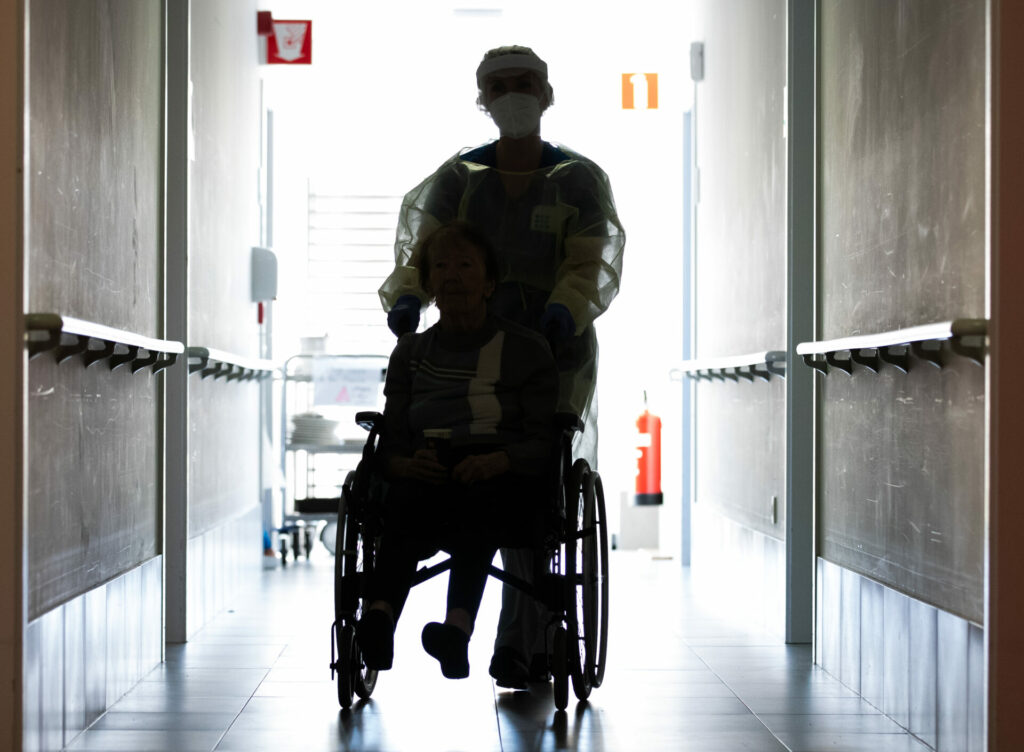Some 600,000 care workers are employed in Belgium, but if demand for care continues to grow, the sector will need up to 25% extra staff by 2040.
The demographic time bomb in Belgium is nothing new: the country's greying population (by 2050, one in 10 Belgians will be over 80) alongside a decline in the number of people "of working age", means scarcity in all labour market segments will grow.
The care sector is expected to be the worst affected, as an ageing population equates to rising care needs. Additionally, more people are suffering from several conditions at once, creating a more complex situation.
Haves and have-nots
To meet the ever-increasing demand, more than 124,000 extra care workers will be needed in the coming 15 years, a study by economist Johan Albrecht (UGent) at the behest of the think tank Itinera, has shown. This includes medical and paramedical profiles for hospitals, but also those caring for the elderly and home nursing.
"If we don't find those extra hands, we risk a painful care crisis: a situation where care collapses and we can no longer care for everyone," Albrecht told de Tijd.
"That also implies health inequality. If the government can offer less care, private initiatives will partly take over, driving up prices and risking a society with haves and have-nots. Those who can afford it will have no trouble finding access to care."
Based on the region's specific needs, Flanders will need 74,000 extra care workers, Wallonia 42,000 and Brussels 8,300. Growing this workforce will be more challenging than ever, because Belgium's working-age population is not rising, but instead remains stable. Brussels and Wallonia are even predicted to experience negative population growth from the 2030s and 2040s, respectively.
Tackling crisis on several levels
Several measures are needed to avert this crisis, said Albrecht. The main focus should be on stricter prevention policies – such as the anti-smoking plan – to stop the advance of chronic conditions, rather than continuing with the current reactive system. These preventative measures could free up to around 25,000 care workers.
The relationship between medical and social problems – for example, access to quality housing – and the cost-effectiveness of treatments should also be considered. "Look at people living in buildings with moisture problems. While we often see that as a housing problem, the medical costs of that are very high."
Employing people from abroad is not considered a solution, because the working-age population in Europe in general is expected to fall by 2 to 3 million people per year from 2030 onwards, meaning it will be increasingly difficult to attract qualified care workers from abroad.
Albrecht also argues against technology taking over some care tasks, as not all new technologies are labour-saving.
"Think of the spectacular evolutions in advanced imaging, which today allow doctors to detect diseases early. This is a positive evolution, but it can lead to overdiagnosis." He explained that this could lead to a loss of time, focussing on symptoms of conditions that may never become problematic.

